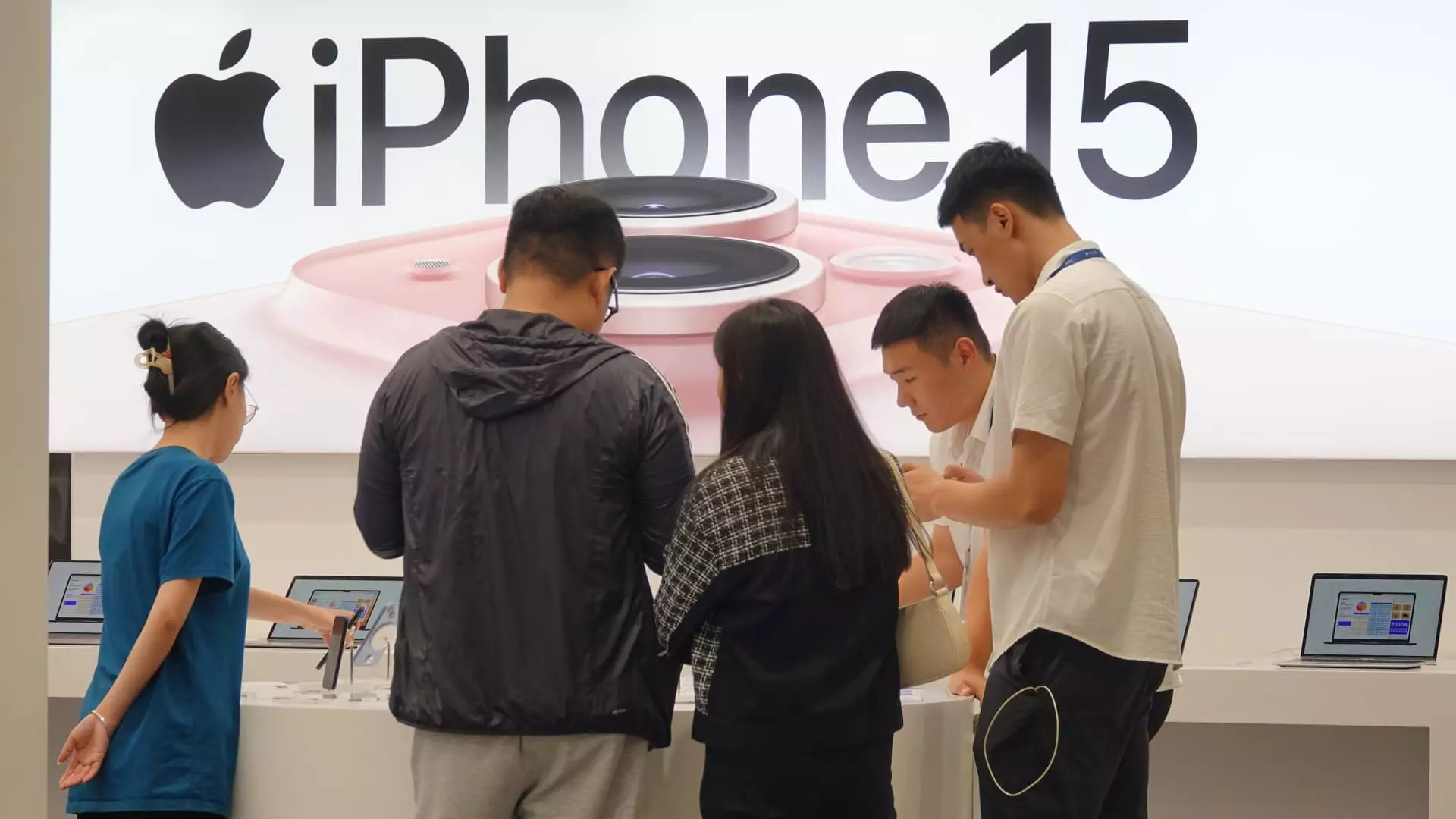Apple’s iPhone sales in China have experienced a significant drop in the first six weeks of 2024, as reported by Counterpoint Research. This decline can be attributed to stiff competition from local smartphone brands such as Huawei, Oppo, Vivo, and Xiaomi. In this article, we will delve into the reasons behind Apple’s struggle in the Chinese market and analyze the impact of Huawei’s resurgence on the smartphone industry.
Apple witnessed a 24% decrease in iPhone sales during the six-week period, leading to a more than 2% decline in its shares. The company faced fierce competition from Huawei, which saw a revival in its consumer business with the launch of the Mate 60 smartphone. While other Chinese smartphone brands also experienced drops in unit sales, Apple’s decline was the most pronounced. Oppo, Vivo, and Xiaomi reported decreases of 29%, 15%, and 7% in smartphone shipments, respectively.
Huawei and its spinoff brand, Honor, emerged as the best-performing smartphone brands in the first six weeks of 2024. Huawei witnessed a remarkable 64% year-over-year increase in smartphone unit shipments, while Honor’s handset shipments grew by 2%. The strategic decision to branch out from Huawei in 2020 has proven to be beneficial for Honor, allowing the brand to thrive in a competitive market landscape.
Huawei’s resurgence in China poses a significant threat to Apple and other premium smartphone brands. The launch of the Mate 60, equipped with 5G connectivity, has attracted consumers back to Huawei after the company faced challenges due to U.S. sanctions in previous years. The availability of cutting-edge technology and competitive pricing has positioned Huawei as a formidable competitor in the high-end smartphone segment.
In addition to facing intense competition, Apple has dealt with supply chain disruptions that have impacted its sales performance in China. The company experienced delays and shortages following Covid-19 lockdowns in China in late 2022, leading to abnormal ‘sell-through’ rates in January 2023 compared to 2024. These challenges have hindered Apple’s ability to meet consumer demand and maintain a strong market presence.
Apple’s decline in iPhone sales in China reflects the evolving dynamics of the smartphone industry, driven by intense competition and technological advancements. Huawei’s resurgence and the success of local Chinese brands have reshaped the market landscape, posing challenges for established players like Apple. Moving forward, Apple will need to adapt to changing consumer preferences and address supply chain issues to regain its position in the Chinese market.


Leave a Reply